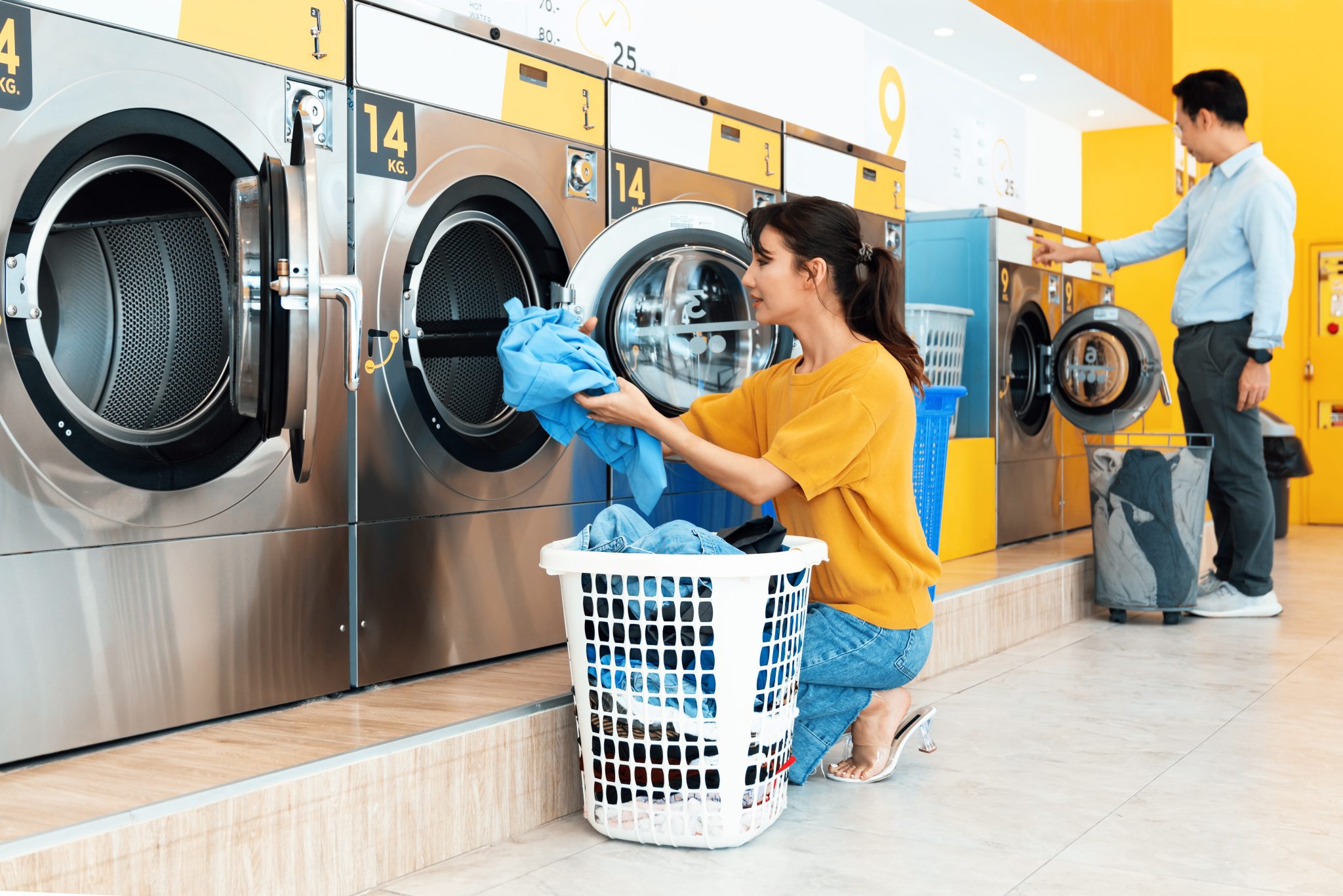Running a laundromat can be a lucrative and rewarding business—everyone needs clean clothes, after all. However, like any small business that deals directly with the public, laundromats are subject to numerous laws, regulations, and compliance standards. To protect your investment and ensure a smooth operation, it’s essential to understand these requirements and stay current with any changes. Below is a comprehensive guide to the common legal pitfalls you should avoid when opening or managing a laundromat.
1. Business Licensing and Permits
Local Business License
Most municipalities require a general business license for any commercial operation. The process typically involves registering your business with your local government, paying a fee, and displaying the license prominently at your place of business. Always confirm your local jurisdiction’s requirements and renewal processes.
Laundromat-Specific Permits
Depending on your state or municipality, you may need additional permits specifically for laundromat operations. These can include:
- Water Usage Permits: Laundromats consume significant amounts of water. Your water department or local authorities may require special permits or additional fees.
- Wastewater Disposal Permits: Proper disposal of wastewater is critical to protect the environment. Some regions require businesses that generate large volumes of wastewater to obtain special discharge or pre-treatment permits.
- Boiler Permits: If your facility utilizes boilers or water heaters over a certain capacity, you may need a boiler permit and regular inspections for safety.
Zoning and Building Permits
Before leasing or purchasing a property, confirm that the zoning allows a laundromat. If you’re renovating or constructing a new facility, you will likely need:
- Building Permits: Required for structural changes, plumbing upgrades, electrical work, or major alterations.
- Occupancy Permits: Final approval that the property meets building code, fire safety, and zoning requirements before opening to the public.
Tip: Engage with an experienced contractor or architect familiar with local codes and regulations to streamline the permitting process.
2. Health, Safety, and Fire Regulations
Fire Safety Codes
Compliance with fire safety regulations is paramount in any commercial establishment. Key considerations include:
- Fire Extinguishers: Maintain accessible, working fire extinguishers throughout the laundromat.
- Emergency Exits and Signage: Mark exits clearly and ensure there are unobstructed pathways for emergency evacuation.
- Electrical Safety: Laundry machines require specialized electrical work. Have a licensed electrician inspect and certify the wiring regularly to prevent electrical fires.
Chemical Storage and Use
While laundromats don’t typically store large amounts of hazardous chemicals, certain detergents, spot removers, or cleaning agents could be considered hazardous. Ensure proper labeling, storage in secure locations, and ventilation. Local regulations might also dictate specific signage and handling procedures.
Slip-and-Fall Hazards
Slippery floors are a leading cause of accidents. Reduce liability exposure by:
- Installing proper drainage systems.
- Promptly cleaning up spills.
- Using “Wet Floor” signage as necessary.
- Scheduling regular floor maintenance and inspections.
Tip: Regular safety audits can uncover potential hazards. Document all inspections and corrections to demonstrate a proactive safety culture.
3. Accessibility Compliance (ADA Requirements)
In the United States, any public-facing business must comply with the Americans with Disabilities Act (ADA). Laundromat owners should ensure:
- Accessible Entrances: Ramps or wheelchair-accessible doors where required.
- Reachable Machines: At least a portion of washers and dryers must be reachable from a wheelchair and have compliant controls.
- Sufficient Maneuvering Space: Aisles and pathways wide enough to accommodate mobility devices.
Failing to comply with ADA standards can lead to costly legal action and fines. Always review the latest ADA guidelines or work with a consultant knowledgeable in accessibility requirements.
4. Environmental Regulations
Energy Efficiency Standards
Modern washers and dryers often come with energy-saving features. Some states or municipalities provide incentives or rebates for installing high-efficiency equipment. In addition, certain localities may require specific energy standards to be met.
Water Conservation
In many regions facing water scarcity, there may be water use restrictions or conservation mandates. Upgrading to high-efficiency washers not only saves on utilities but may also be required to meet local green initiatives. Be sure to keep up with:
- Flow Restrictors
- Effluent Requirements
- Stormwater Runoff Regulations (for runoff from your building and parking lot)
Hazardous Waste Disposal
If your laundromat offers dry cleaning or specialized stain removal services, you might handle chemicals that require special disposal. Properly label, store, and dispose of these substances to avoid violating environmental laws.
5. Employee and Labor Law Compliance
If you hire employees to manage day-to-day operations (e.g., attendants, cleaning crews, or administrative staff), ensure compliance with employment and labor regulations:
- Wage and Hour Laws: Comply with federal, state, and local minimum wage and overtime requirements.
- Workers’ Compensation Insurance: Most states require workers’ comp coverage to protect employees in case of injury.
- Anti-Discrimination Laws: Follow guidelines set by the Equal Employment Opportunity Commission (EEOC) to prevent discrimination in hiring, training, and promotions.
- Safety Training: Provide formal training on how to handle equipment, chemicals, and any foreseeable hazards.
Tip: Keep clear records of employment agreements, payroll, and safety training to avoid disputes and demonstrate compliance in the event of an audit or investigation.
6. Insurance Coverage
While technically not always a “legal requirement,” proper insurance is vital for mitigating risk. Common policies for laundromat owners include:
- General Liability Insurance: Covers bodily injury and property damage claims made by customers or third parties.
- Property Insurance: Protects against damage to equipment, the building, and inventory (e.g., soap, spare parts).
- Workers’ Compensation Insurance: Legally required in most areas for businesses with employees.
- Business Interruption Insurance: Helps cover lost income if your operation must close temporarily due to a covered event (e.g., fire, natural disaster).
Consult with an insurance broker who specializes in commercial policies for small businesses. Adequate coverage protects not only your laundromat but also your personal assets.
7. Routine Inspections and Record-Keeping
Regular inspections—by local authorities or by your own internal audits—can help you stay ahead of compliance issues:
- Equipment Maintenance Records: Keep detailed records of all equipment inspections, repairs, and replacements.
- Safety Checklists: Document daily or weekly checks for potential hazards (e.g., water leaks, faulty wiring, blocked exits).
- Permit and License Renewals: Mark calendar reminders for every renewal date and maintain documentation in an organized file.
Staying organized and current with inspections and record-keeping not only ensures compliance but also demonstrates a professional approach that builds trust with customers, lenders, and insurers.
8. Staying Up to Date with Changes in Regulations
Laws and regulations, especially those related to environmental impact and safety, are continuously evolving. Some ways to stay informed include:
- Joining Industry Associations: Local and national laundromat associations often provide the latest legal and compliance updates.
- Consulting with Professionals: Maintain relationships with a business attorney, accountant, or compliance consultant who can alert you to relevant legislative changes.
- Subscribing to Government Alerts: Many city, state, and federal agencies offer email or text notifications about new regulations or permitting rules.
Tip: Regularly review official government websites for updates on local ordinances, building codes, and state or federal regulations.
Conclusion
Opening and operating a laundromat involves more than just installing washers and dryers. From obtaining the correct permits and licenses to meeting safety and accessibility standards, laundromat owners must navigate a range of legal obligations. Failing to comply can result in hefty fines, lawsuits, or even the closure of your business. However, with careful planning, diligent maintenance, regular inspections, and staying informed about changing regulations, you can avoid the most common legal pitfalls and create a safe, welcoming environment for your customers.
By prioritizing legal compliance and safety, you not only protect your investment but also foster trust and loyalty among customers. The result is a well-run, profitable laundromat that stands the test of time and avoids unnecessary legal complications.




